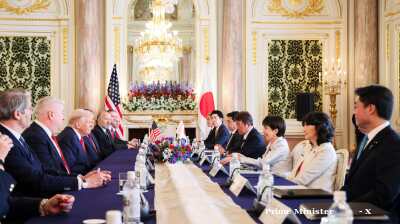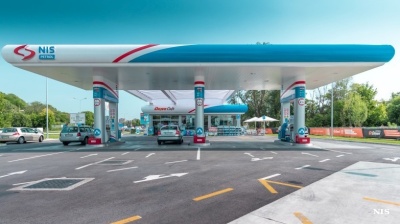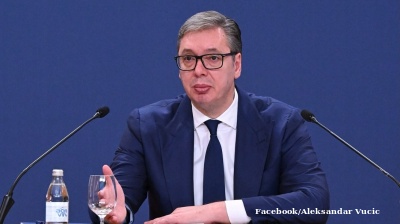The chief negotiators for Belgrade and Pristina reached an agreement on the bitter dispute over car number plates late on November 23 that will ease the tense situatin in northern Kosovo.
The dispute already led to protests and an escalation of tensions in Serb-dominated northern Kosovo. EU High Commissioner Josep Borrell warned earlier this month that Kosovo and Serbia were on the edge of another conflict.
“Very pleased to announce that chief negotiators of Kosovo and Serbia under EU-facilitation have agreed on measures to avoid further escalation and to fully concentrate on the proposal on normalisation of their relations,” EU High Representative Josep Borrell said in a tweet.
According to Borrell, Serbia will stop issuing license plates with Kosovan cities’ denominations, while Kosovo will cease further actions related to the re-registration of vehicles.
“I will invite the parties in the coming days to discuss next steps,” Borrell said.
He also thanked EU envoy for the dialogue Miroslav Lajcak “for the hard work”.
Diplomatic efforts
EU and US diplomats had been trying to persuade Pristina to delay the new rules on number plates in an attempt to avert a worse crisis.
Kosovo planned to start fining Serbs in the country who continue driving cars with the old neutral status KS plates, rather than switching to RKS plates, from November 24.
Ethnic Serbs already held several protests against what they say is repression by the Kosovan authorities. They also expressed anger about the overall situation in northern Kosovo, claiming that Pristina wants to evict Serbs from the county.
The chief negotiators of Belgrade and Pristina, Petar Petkovic and Besnik Bislimi, held talks in Brussels with Lajcak in an attempt to find a solution before the November 24 deadline.
Previously, on November 22, Kosovo’s PM Albin Kurti decided to postpone for two days the implementation of the decision to impose fines on Serbs in northern Kosovo, upon the request of the US ambassador to Pristina Jeff Hovenier. This happened after Kosovo and Serbia failed to reach an agreement on the issue during a meeting in Brussels on November 21.
The European Parliament rapporteur for Serbia, Vladimir Bilcik, said that EU expected Pristina to take action to reach an agreement with Belgrade, Serbian news agency Tanjug reported on November 23.
“At this moment when it comes to license plates, it is clear that the ball is in Pristina's hands and we expect Pristina to take action. There are still so many open questions that can only be resolved if there is goodwill to leave the past behind and to look towards the future,” Bilcik told Tanjug.
According to Bilcik, the future must be based on reconciliation and the fact that people in the region must find a way to live side by side.
Visa liberalisation stalled
Pristina came under further pressure as the issue of visa liberalisation for Kosovo was removed from the EU Council agenda on November 23 due to the latest developments in northern Kosovo.
The EU Czech presidency said it decided to postpone the adoption of the text on visa liberalisation for Kosovo due to political conditions and tensions in the north of the country.
It was previously announced that the abolition of the visa regime would come into force when the ETIAS information system is fully functional on January 1, 2024 at the latest. Kosovans are currently the only citizens of the Western Balkans that still need a visa to travel to the EU’s Schengen area.
The European Parliament's rapporteur for Kosovo, Viola von Cramon, criticised the decision to postpone talks on visa liberalisation.
"Visa liberalisation for Kosovo is long overdue and must be delivered unconditionally, whereby its today’s removal from EU Council Agenda is absolutely unacceptable," von Cramon tweeted.
"The visa liberalisation and EU-led Serbia-Kosovo Dialogue must remain separate issues!" she added.
Postponing talks on visa liberalisation until 2023 could be problematic as Spain, which will hold the rotating EU Council presidency in the second half of the year, does not recognise Kosovo's independence. Madrid has asked that the date for a decision on visa liberalisation decision not coincide with its presidency between July 1 and December 31, 2023, according to Kosovo online.
News
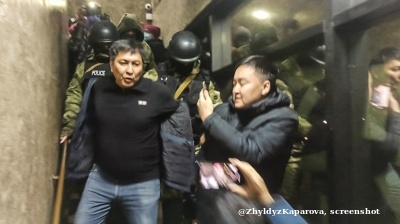
Kyrgyzstan bans three media titles as “extremist organisations”
Populist-nationalist president Sadyr Japarov, due to meet Donald Trump next week, denies introducing authoritarian controls.

Lula says Trump assured him of trade accord as US explores Brazil rare earths ties
Brazilian President Lula voiced optimism that his country will secure a trade agreement with the US following talks with President Trump, as Washington simultaneously stepped up engagement with Brazilian mining executives to discuss rare earths.
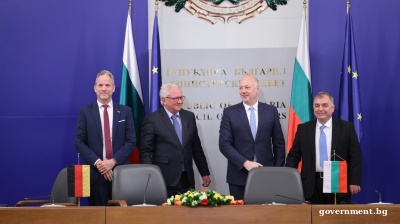
Bulgaria signs landmark deal with Rheinmetall to build ammunition plant
Investment reflects Bulgaria’s growing role in Europe’s rearmament drive and Nato’s efforts to strengthen regional defence supply chains and cut reliance on external suppliers.
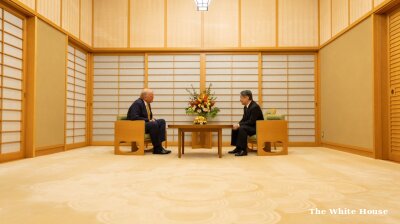
US-China trade talks deliver breakthrough as markets rally ahead of Trump-Xi meeting at APEC
How and if China will react to a US-Japan rare earths deal remains to be seen but Beijing has said it will suspend its restrictions on rare earth metal exports in what is a move likely to ease pressure on the US tech and defence sectors.
